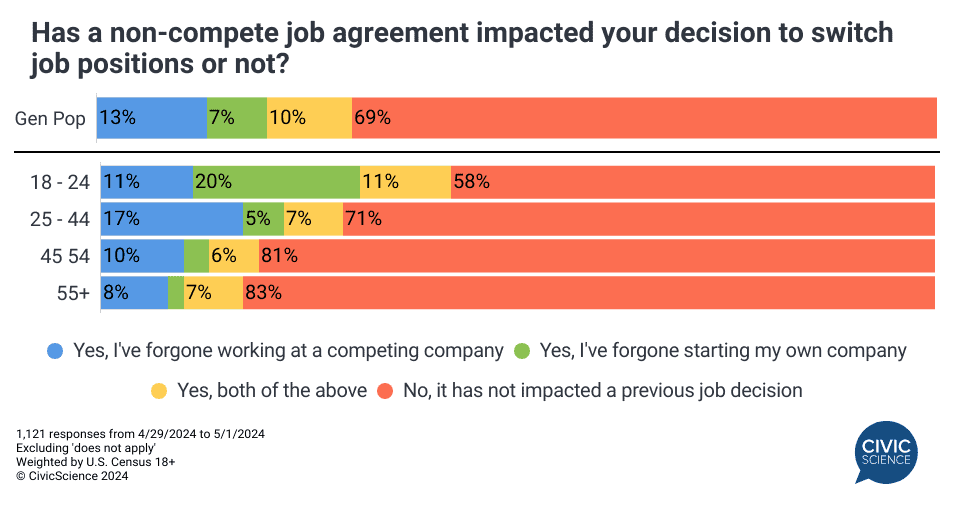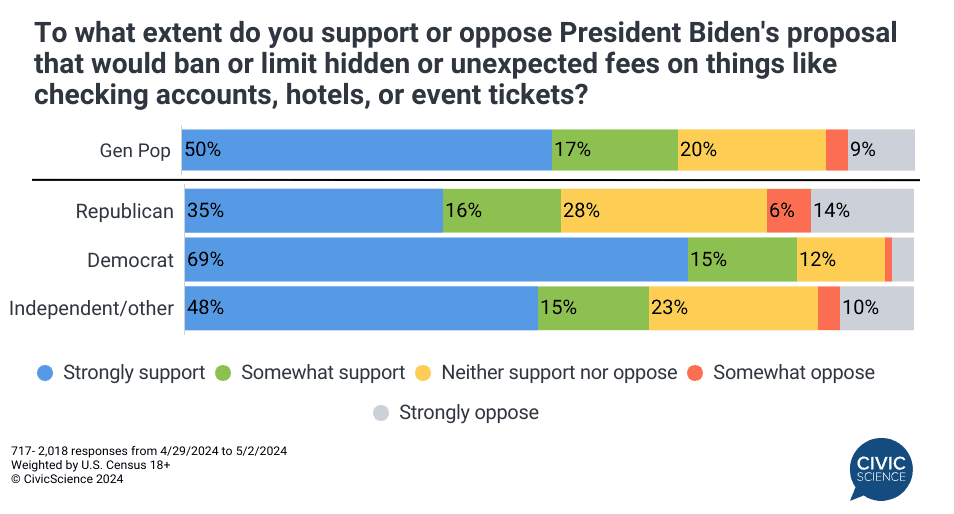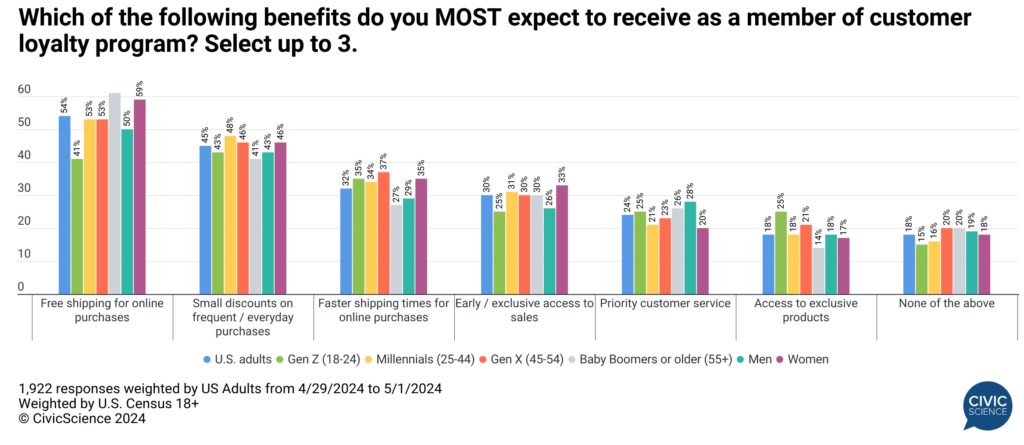CivicScience continually tracks current and anticipated consumer trends. Here are three key insights marketers should know this week. All insights are derived from the CivicScience Social | Political | Economic | Cultural (SPEC) Report, a weekly report available to clients covering the latest news and insights. Start here to learn more.
1. Three in ten Americans have refrained from a job change due to non-compete agreements.
The Federal Trade Commission voted in late April to ban non-compete agreements for nearly all jobs. Once the ban is implemented later this year, most Americans will be able to pursue opportunities with competing companies or launch their own ventures.
New CivicScience polling highlights the substantial impact of these agreements – as much as 30% of Americans have refrained from changing jobs due to non-compete agreements. Millennials are most likely to have held off from working at a competitor, while Gen Z adults are the most likely to have abstained from starting their own business.

Join the Conversation: Do you personally think the FTC did or did not go too far in banning non-compete agreements?
2. More than two-thirds of voting-age Americans, including half of Republicans, back Biden’s push to limit or ban junk fees.
President Biden has taken aim at reducing or banning hidden or unexpected fees on a variety of purchases from hotels to concert tickets, commonly referred to as junk fees. U.S. adults express widespread support for the proposal, with more than two-thirds of Americans backing Biden’s initiative. Furthermore, support appears to be bipartisan – over half of Americans, regardless of party affiliation, say they support the banning or limiting junk fees.

3. Free, expedited shipping tops the list of consumer expectations for loyalty program perks.
New CivicScience data reveals varying online purchasing trends: Groceries, household items, and beauty products are predominantly bought in stores, while prescription medications are often ordered online for curbside pickup. Clothing, electronics, and gifts top the list for online delivery. Customer loyalty programs also play a role in the equation as consumers make these purchases.
When signing up for a customer loyalty program, one in three U.S. adults say they expect to receive free expedited shipping on online orders as a benefit of membership. Women and respondents under 55 are more likely to expect faster shipping times as a loyalty program perk, while men and older consumers tend to expect other benefits, such as priority customer service.

Take Our Poll: Which of the following best describes your levels of satisfaction with the rewards/perks offered in brand loyalty programs?
Clients receive the SPEC Report in full, plus access to real-time insights driven by our database of over 500K questions. Contact us now to see it in action.


